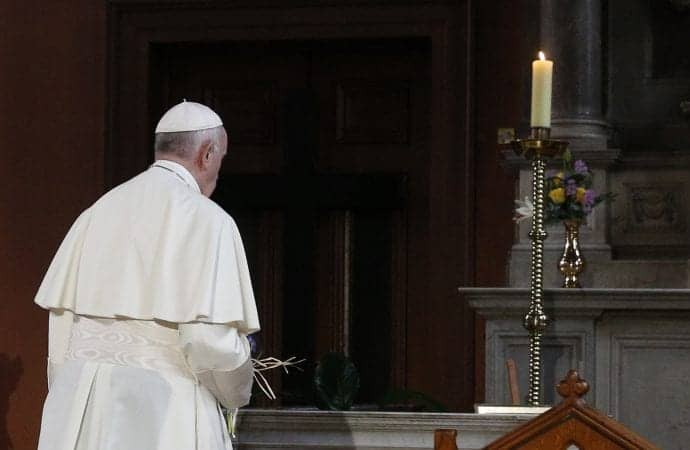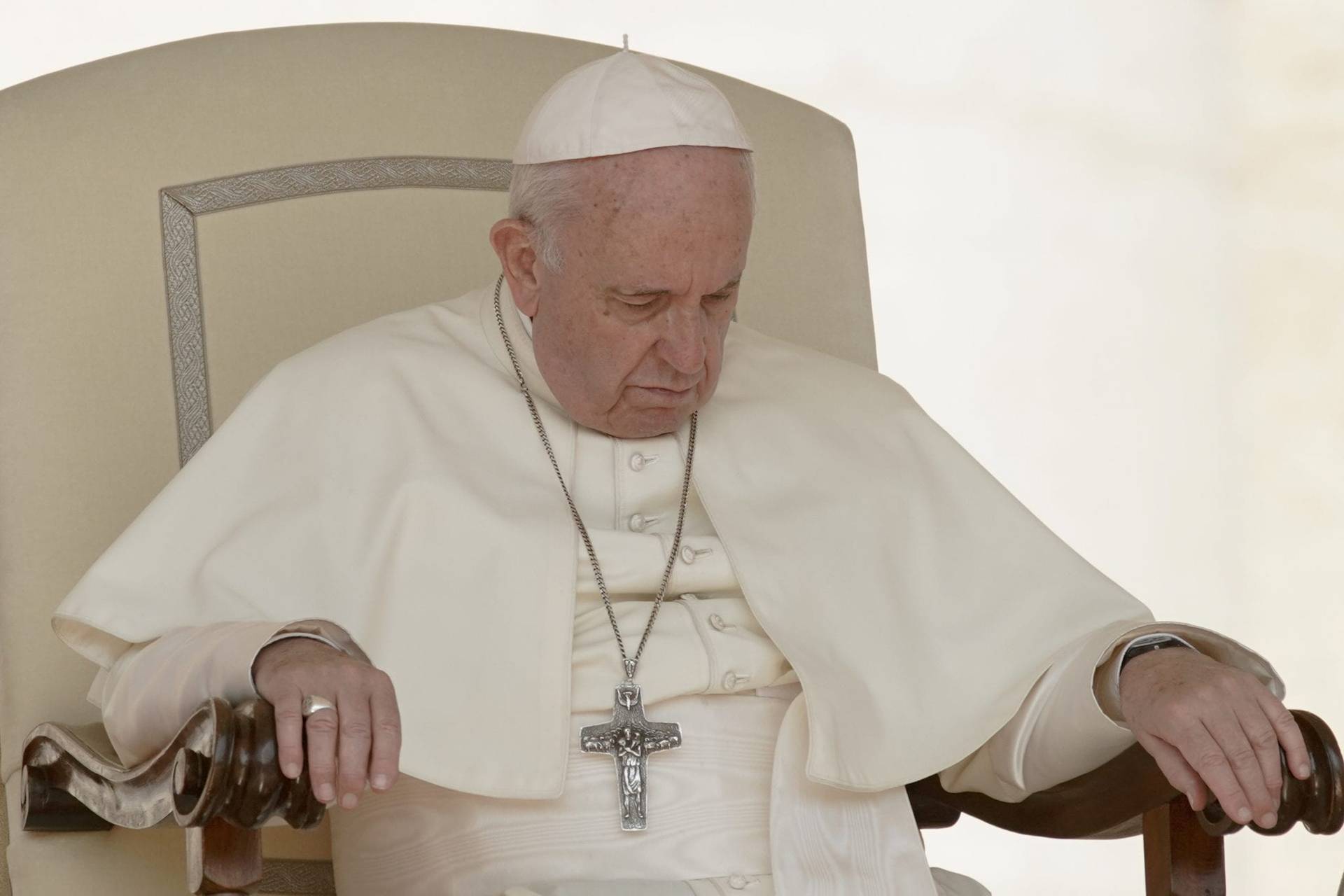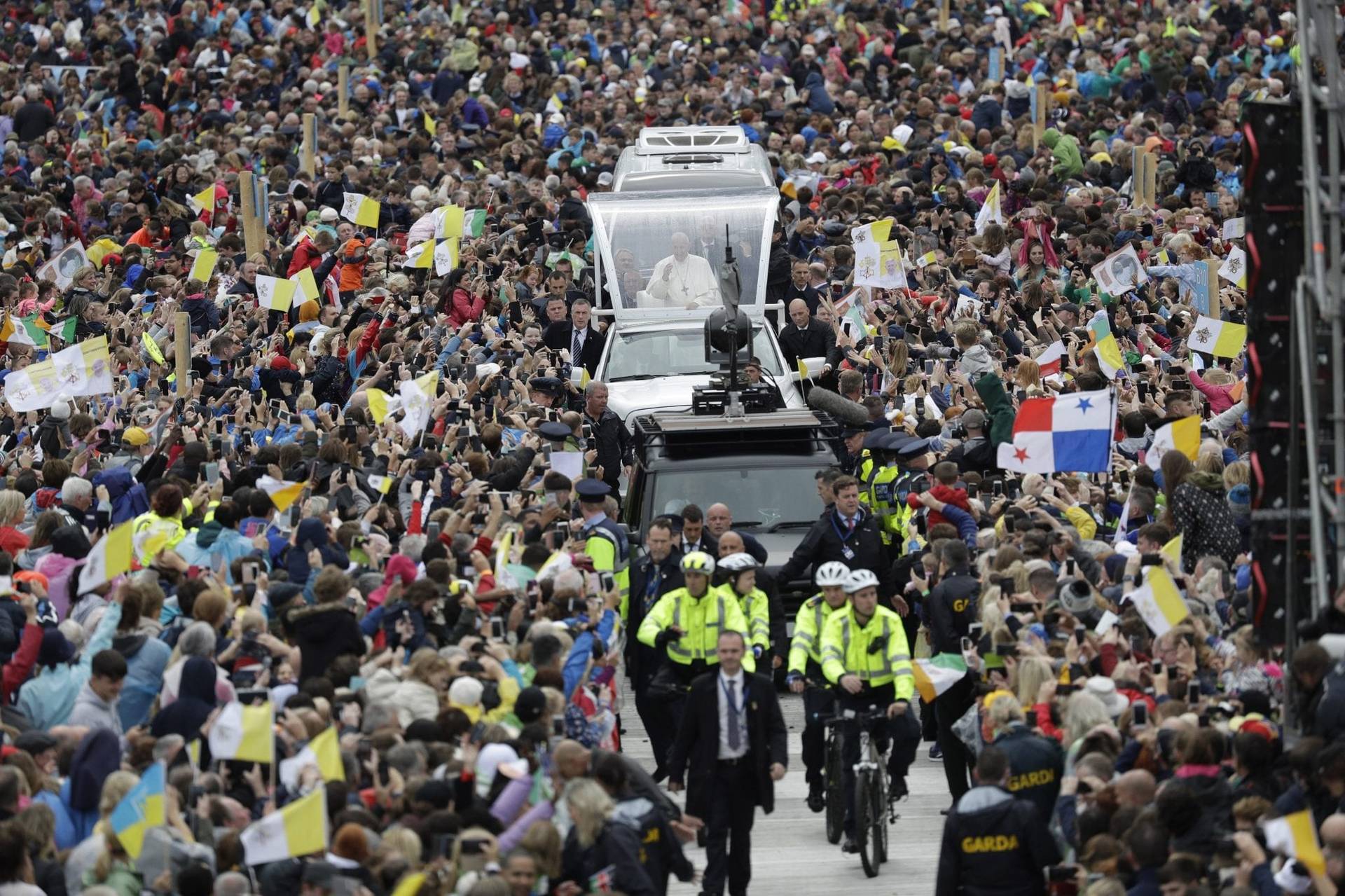BELFAST – When Pope Francis visits Ireland at the end of the month for the World Meeting of Families in Dublin, he’ll come to a country “unrecognizable” compared to the island that St. Pope John Paul II saw back in 1979, according to Catholic and Protestant historians alike.
While the old struggles and sectarianism continue to influence political and religious dynamics, new challenges have arisen such as a growing tide of secularism, the political uncertainties brought on by Brexit and – perhaps most importantly – the damage done to the Catholic Church by a large-scale sex abuse crisis.
When John Paul II visited Ireland, he met a society lacerated by bloody conflict between Catholics and Protestants, Unionists and Republicans, Nationalists and Loyalists, known as “The Troubles.” Back then, the pope faced the enormous task of encouraging reconciliation and peace.
Though less evident, these issues have not entirely lost their relevance. Yet Francis will also have to face the challenge that many people here, including Catholics, have lost faith in religion and demand systemic change.
Despite all that, excitement for the papal visit remains strong and the consensus is that Francis’s words and presence could have a significant impact on this island at a time of profound change.
The end of an era: John Paul II’s visit to Ireland
When the 59-year-old Polish Pope John Paul II came to semper fidelis, “always faithful,” Ireland in late September 1979, the island was experiencing violent clashes linked to the Catholic/Protestant divide.
“He was coming at the height of the Troubles,” said Eamon Phoenix, a well-known Catholic historian specializing in Irish history and a columnist for the BBC, in a phone interview with Crux.
On August 27 – two days before the pope’s arrival – Lord Mountbatten of Burma, a cousin of Queen Elizabeth II, was killed along with three others while on a fishing trip at the hands of IRA terrorists.
The next day, 18 English soldiers were killed by a bomb detonated by the IRA near the border of the Irish Republic, in what is known as the Warrenpoint massacre.
In light of such atrocities, when John Paul delivered his homily during Mass in Drogheda the most memorable words were an appeal to the paramilitaries in the country to work toward peace.
“Now I wish to speak to all men and women engaged in violence,” John Paul said to an audience of thousands. “I appeal to you, in language of passionate pleading. On my knees I beg you to turn away from the paths of violence and to return to the ways of peace.”
He also spoke directly to youth who were enveloped and seduced by the violence in Ireland, saying that “with all the love I have for you, with all the trust I have in young people: do not listen to voices which speak the language of hatred, revenge, retaliation.”
Political representatives knelt to kiss the pope’s ring and receive his blessing as he called for an end of violence in a pacified Ireland.
“You had this conjunction of northern nationalism and Catholics to welcome the pope,” Phoenix said, something that will not be occurring on this trip since Francis will have no official meeting with local government.
Despite John Paul using the word “peace” fifty times, Phoenix believes that “the pope had no impact” and “his words fell on deaf ears,” as violence continued even after the Good Friday Agreements in 1998.
But according to Rev. Johnston McMaster, a theologian, historian and coordinator of the Education for Reconciliation program at the Irish School of Ecumenics in Belfast, the words of the pope left an impression for generations.
John Paul II’s appeal for peace “was a significant contribution, among other contributions,” which eventually paved the way for reconciliation, McMaster told Crux by phone.
He said deep changes had been taking place in Ireland starting in the ’60s, and while John Paul’s visit galvanized Catholics in the country, already religion was losing its influence and appeal.
In his famous Drogheda speech John Paul said to seek “places which carry in themselves the sign of new beginning,” though, according to Phoenix, the reality in Ireland was the opposite.
“His visit marked the end of an era,” he said.
Pope Francis’s challenge
According to Phoenix, “Ireland today is unrecognizable” compared to thirty years ago. Secularization, the “Mardi Gras” celebrations that followed a recent referendum to legalize abortion, diminishing vocations and plummeting Mass participation paint a very different picture for Francis’s visit Aug. 25-26.
Phoenix said the role of the Catholic Church has considerably diminished, and while it has “consistently condemned violence,” it doesn’t do enough to promote reconciliation.
“I think he will come to a very, very different Ireland, one that has changed radically, north and south,” said McMaster, stating that “it is a secular Ireland.”
Profound changes in the texture and context of the country, he said, have led to a strict separation between religion and the political realm. But McMaster suggests that “secular” should be understood as a healthy separation between Church and state, and not “the end of faith.”
In his view, the ‘60s brought in a wave of enlightenment that the island had resisted for centuries but to which it slowly adapted, putting an end to “the European phenomenon of Christendom,” where the religious and political spheres were understood as a single body.
“This has at last caught up with Ireland,” he said, adding that “the churches, all of them, have not reckoned with the change fully.”
This visit, he said, will also force Francis to confront the “dark side to Church life here in Ireland.” The sexual abuse crisis, amplified by others all over the world, is a hot-button issue.
“Will Pope Francis say something about the Church’s responsibility in dealing with the problem of abuse?” McMaster asked, adding that a lack of such a statement would be met with disappointment.
“It needs to be put right in terms of policies and rules in the future and make sure this kind of thing does not happen or is covered up, which is the perception from the tip down,” he added.
“What he will say will have significance one way or the other.”
Northern Ireland: A missed opportunity
For many Catholics and non-Catholics living in Northern Ireland, the fact that Francis will not make a visit is a “great disappointment,” Phoenix said. “He should have acknowledged the Northern Irish Catholics,” he added.
“People feel abandoned,” he said, and they ask, “What about us?”
Phoenix said the pope’s words could have resonated with many young people in the country, practicing and not, calling the no-show a “missed opportunity.”
McMaster agreed that “disappointing is an understatement” in Northern Ireland regarding the lack of a papal visit, especially since all religious leaders welcomed the event.
What is even more remarkable, McMaster said, is that the political leaders looked favorably at the visit pointing to “a more tolerant society and [were] willing to acknowledge that the pope represents 40, 50 percent of people in Northern Ireland.”
Though things are not as bad as they were when John Paul visited the Irish Republic in 1979, Northern Ireland is “not without difficulty,” he said, “and it still remains a fragile peace process with a lot of work still to be done.”
Sectarianism between Catholics and Portestants and between differing visions for the future of Northern Ireland is very much alive today, McMaster said.
“That partition has still been an elephant in the room, but I think we should talk about it,” he continued, referring to the issue of reunification. “We are a society in Northern Ireland where we have settled on a kind of benign apartheid a long way from peace and reconciliation.”
As the country moves toward the centenary of the partition of Ireland in 1921, within the context of Brexit, perspectives in the island are shifting. Some people fear “that they might end up on the wrong side of the border again, but this time the European border,” he said.
Among this uncertainty and change, a papal visit could have been a sign of encouragement, McMaster said, for a region that already feels ignored by the English government in terms of its needs and aspirations.

















